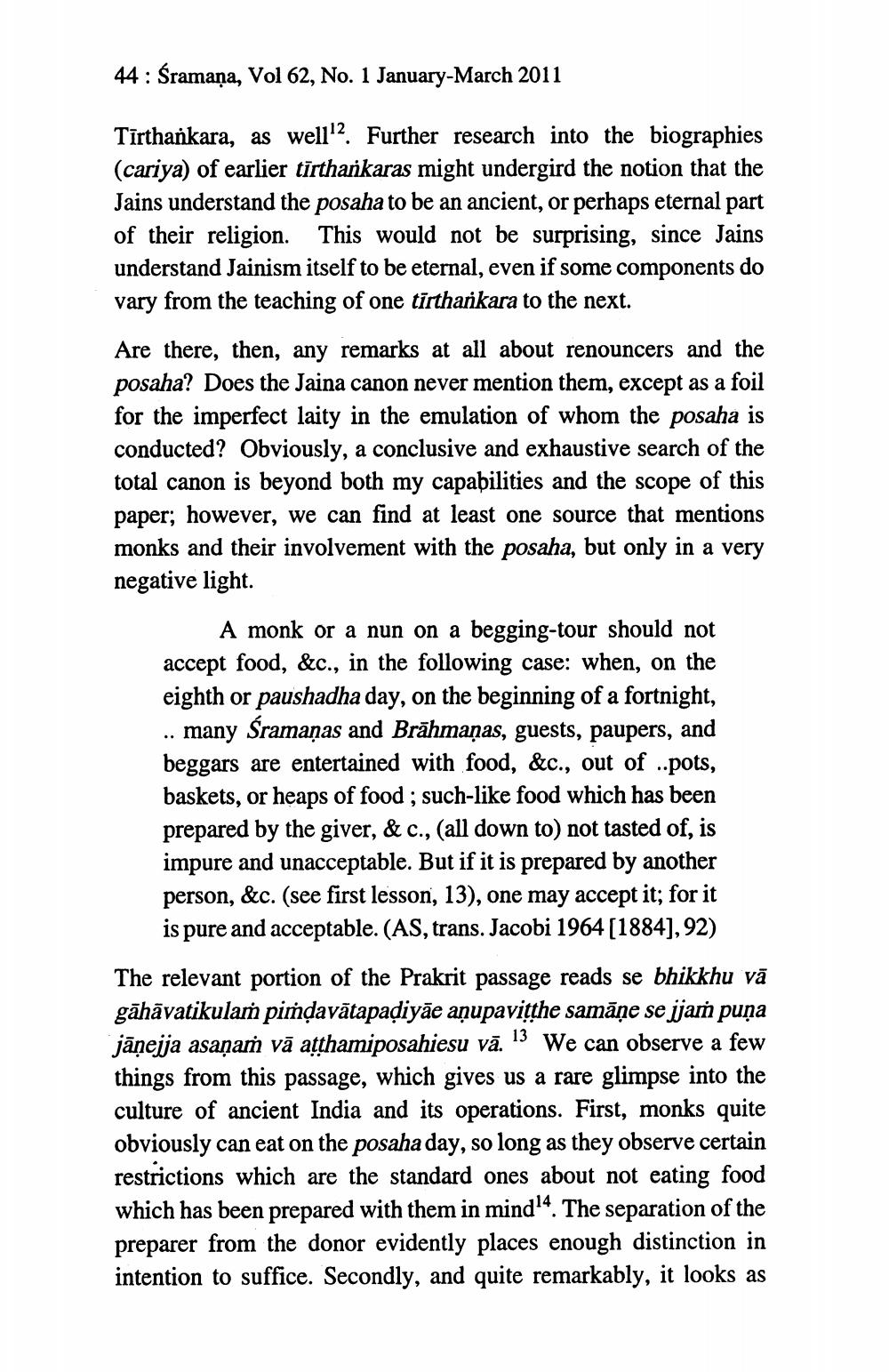________________
44: Šramaņa, Vol 62, No. 1 January-March 2011
Tīrthankara, as well!?. Further research into the biographies (cariya) of earlier tīrthankaras might undergird the notion that the Jains understand the posaha to be an ancient, or perhaps eternal part of their religion. This would not be surprising, since Jains understand Jainism itself to be eternal, even if some components do vary from the teaching of one tirthankara to the next.
Are there, then, any remarks at all about renouncers and the posaha? Does the Jaina canon never mention them, except as a foil for the imperfect laity in the emulation of whom the posaha is conducted? Obviously, a conclusive and exhaustive search of the total canon is beyond both my capabilities and the scope of this paper; however, we can find at least one source that mentions monks and their involvement with the posaha, but only in a very negative light.
A monk or a nun on a begging-tour should not accept food, &c., in the following case: when, on the eighth or paushadha day, on the beginning of a fortnight, .. many Śramaņas and Brāhmaṇas, guests, paupers, and beggars are entertained with food, &c., out of ..pots, baskets, or heaps of food; such-like food which has been prepared by the giver, &c., (all down to) not tasted of, is impure and unacceptable. But if it is prepared by another person, &c. (see first lesson, 13), one may accept it; for it
is pure and acceptable. (AS, trans. Jacobi 1964[1884), 92) The relevant portion of the Prakrit passage reads se bhikkhu vā gāhāvatikulaṁ pimdavātapadiyāe anupavitthe samāņe se ijar puņa jāņejja asaņas vā atthamiposahiesu vā. 13 We can observe a few things from this passage, which gives us a rare glimpse into the culture of ancient India and its operations. First, monks quite obviously can eat on the posaha day, so long as they observe certain restrictions which are the standard ones about not eating food which has been prepared with them in mind!4. The separation of the preparer from the donor evidently places enough distinction in intention to suffice. Secondly, and quite remarkably, it looks as




